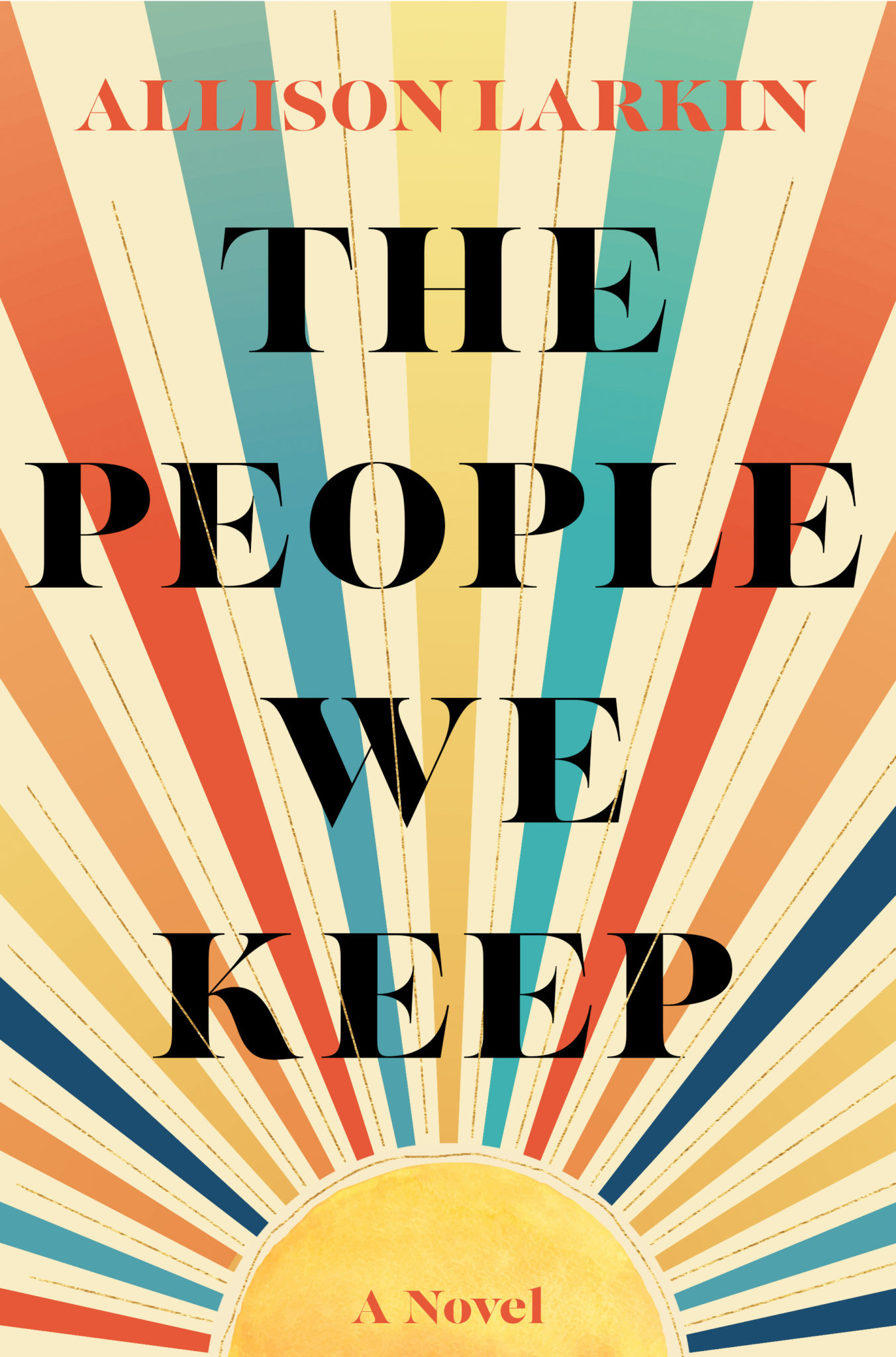 Synopsis:
Synopsis:
Little River, New York, 1994. Sixteen-year-old April Sawicki lives in a motorless motorhome that her father won in a poker game. Failing out of school, picking up shifts at Margo’s Diner, she’s left fending for herself in a town where she’s never felt at home. When she “borrows” her neighbor’s car to perform at an open mic night, she realizes her life could be much bigger. After a fight with her dad, April packs her stuff, steals a car, and with only her music to keep her company, leaves for good. She hits the road, determined to find a life that’s all hers.
Driving without a chosen destination, she stops to rest in Ithaca. Her only plan is to survive, but as she looks for work, she finds a kindred sense of belonging at Cafe Decadence, the local coffee shop. Still, it doesn’t make sense to her that life could be this easy. The more she falls in love with her friends in Ithaca, the more she can’t shake the feeling that she’ll hurt them the way she’s been hurt.
April manages to scrape together a meaningful existence on the road, meeting people who feel like home and chronicling her life in the songs she writes. She discovers that where she came from doesn’t dictate who she is meant to be.
And that home is with the people you choose to keep.
Author Allison Larkin delivers an unflinching, lyrical story of a young woman who yearns for the fierce power of belonging and discovers the profound beauty of a family found along the way.
Review:

Allison Larkin began writing The People We Keep in 2006 when she was working on her first novel, Stay. While listening to music (“Iowa” by Dar Williams and “This is the Sea” by The Waterboys), she got the idea for the story and her protagonist in The People We Keep, April Sawicki, just “came to” her. She stayed. She’s “like a [real] person to me,” Larkin relates, and has been a constant in Larkin’s life since then. In the intervening years, she went on to publish Stay and two other novels, Why Can’t I Be You, and Swimming for Sunlight, but ultimately returned to April’s poignant, touching and, to some extent, personal story. Larkin set a portion of the novel in Ithaca, New York, a place she holds in her heart because, like April, there was a period in her life when she felt lost. While attending Ithaca College, Larkin formed enduring friendships and experienced freedom. “I fell in love with the city and it hasn’t faded,” she says.
April was abandoned by her mother when she was just six years old. From there, her life has only gotten worse to the point that, at sixteen years old, she is living in a seedy trailer park in a motorhome that doesn’t even have an engine. Her emotionally absent father has also spent the past several months being physically absent, living with another woman, Irene, and fathering her young son, while failing to even provide April with the basic necessities like food. She works part-time at the local diner owned by Margo, who is her friend and surrogate mother. Margo cares deeply for April and understands her father well, having dated him in high school and again after April’s mother left. “Your father’s a good man, April. He always means to be a good man,” Margo explained when telling April that she was breaking up with her father, but not her. “He just . . . he gets in the way of himself, you know?” Margo and the diner give April a place where she can retreat, feel safe, and talk about life and her future. April is flunking her classes, but is completely enthralled with the old guitar her father gave her as a birthday present. She taught herself to play and is writing her own songs.
One night April finds the courage to hotwire her elderly neighbor’s car and attend open mic night at the Blue Moon Cafe. She performs two of her original songs — one about losing her virginity to her boyfriend, Matty, and another about her father (“Don’t forget you made me. Don’t forget you made me the way I am”). The audience loves her. She returns to the motorhome, curls up in the driver’s seat to sleep . . . and fails her math test the next day. She decides to quit school and is offered a steady Friday night gig at the Blue Moon. But April discovers her father’s secrets and they prove how little he cares about her. In a fit of anger, he breaks her guitar. After another argument, April has had enough. She steals her father’s car and heads to Matty’s house “one last time” with the knowledge that their discussions about marriage were not realistic. Because if she stays, she “will always be a body at rest” rather than the person she is meant to be. She shoves any possessions she figures will prove useful into garbage bags and throws them into the car, along with her mother’s ring, and a hundred and seventy-eight dollars saved from working at the diner, driving on an interstate highway for the first time . . . with Little River and her little life there in her rearview mirror.
She sees a sign indicating that Ithaca is forty-one miles away. “I feel like the sign for Ithaca is fate or something close to it,” April relates in the first-person narration Larkin employs to tell her story. She finds a dirty campground where she can spend the night, and in the morning walks into town. The Cafe Decadence has a “help wanted” sign in the window and the owner, Carly, hires her on the spot.
Thus begins April’s journey to discover who she really is, what matters most to her, and find a place to belong and people she can love and be loved by. Her first stop is Ithaca, but when her time there comes to a heart-wrenching end, even though it is the place where she makes her “first true friend,” she hits the road again. Along the way, music sustains her spirit and feeds her soul, and she carves out a unique career as a singer-songwriter. She loves hearing her favorite sounds — “the click of the strap buckle against the guitar, pop of the mic as I switch it on, the way the strings of the guitar vibrate ever so slightly when I rest it on my leg.” She records and sells her CD’s at the various venues where she performs and, over time, her music also “comes with its own chains. Leaves me pulled apart and spread too thin.” It doesn’t provide the freedom she dreamed about. Several times she lands in places where she thinks maybe she “could really fit” but when things do not work out, she resumes her nomadic life even as it “gets harder and harder to follow the road” and she decides she’s “done with wanting what can’t be mine.”
What I want most is a life that’s all mine.
But April presses on, despite loneliness, longing, and disappointment. She is a deeply sympathetic character, because her struggle is one that is universally understood and to which readers can readily relate. April’s parents displayed the worst kind of callous disregard for her well-being. Her mother left her with her father who lacks the capacity to love and, worse, be present in his daughter’s life. Rather than care for her, he gets involved with Irene, lavishing his attention on her son and fathering another child with her, leaving April to fend for herself in the motorless motorhome that has holes in the floorboard. April, with the unconditional support of Margo, figures out how to survive in Little River, but life there is too confining and finite for her. She summons the strength to escape, but, as she explains, she has never had a real friend or traveled, and she is unprepared for the challenges she encounters on her own. She is naive and she gets used, but she is a fast learner.
Larkin’s choice to set the story in the 1990’s — a decade that seems, in retrospect, so much simpler and less complicated than today, in part because there was no social media — and let April tell her story in her own words is highly effective. Larkin’s straight-forward, unembellished writing style enhances the tale’s emotional resonance. Because readers are privy to April’s inner dialogue in which she voices all of her fears, insecurities, dreams, and desires, readers don’t merely understand her journey. Rather, April embeds herself in reader’s hearts at the very beginning of the story and continues residing there — as she has lived in Larkin’s consciousness since 2006 — taking readers with her on her sojourn as she learns about what it means to really love another person (“It’s easy to fall in love with someone when you need them, but that doesn’t make it real or right”), love herself, and be simultaneously self-reliant and able to make room in her life for others to love her. After great internal turmoil, April reconciles, in her own way, with her father, finally appreciative of and embracing Margo’s wise explanation about his shortcomings. “It wasn’t about me at all. He did what was easy. He didn’t have it in him to do any better.” She also figures out that she does not have to grow up to be like her parents, destined to make the same mistakes, but she can instead make healthier choices and conduct her life according to her own needs and desires. Ultimately, she learns how to let people love her . . . and that those who do love her are the people she wants to keep in her life.
The People We Keep is a poignant coming-of-age story of one indomitable young woman who instinctually recognizes that her life is not meant to forever be limited and constrained by her circumstances. Rather, she summons her innate inner resources to explore the world and the people who inhabit it in a quest to find what makes her happy and fills her spirit up. Along the way, she learns painful, often heartbreaking truths about herself, the people she meets along the way, and how the world operates, as she searches for what her parents never gave her: a home and all it symbolizes. “A real place with a floor that isn’t on wheels, where there aren’t any lies left to catch up with me.”
In The People We Keep, Larkin compassionately details April’s examination of and quest for what and who matter to her life. She hopes April’s story will serve as a reminder to readers to take a moment and “think about the people in their life who have been an enduring part of it in healthy and happy ways.” Because for all of us, those are the people we keep.





Comments are closed.